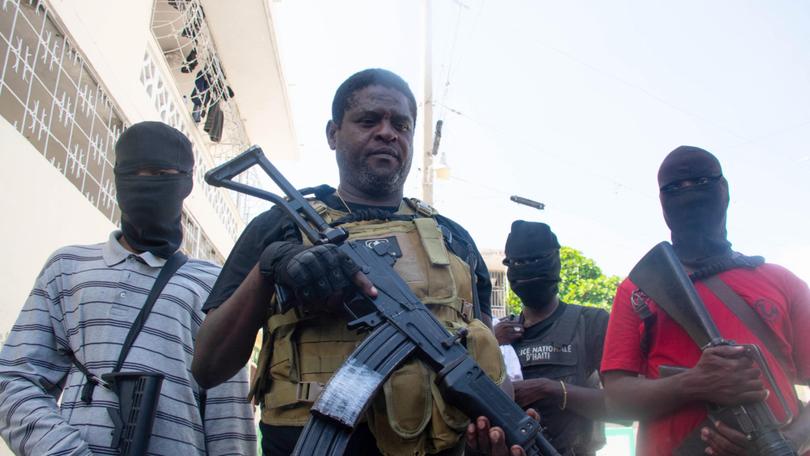Haiti Prime Minister Ariel Henry lands in Puerto Rico as gang violence continues to grip island nation
News of Ariel Henry’s arrival in Puerto Rico followed reports of intense gunfights between local forces and gangs battling for the country’s airport.

Haiti’s Prime Minister Ariel Henry has landed in Puerto Rico, as questions as to why he had not returned to his country swirled amid escalating gang violence that has threatened to topple his government and left thousands homeless.
Puerto Rico’s governor’s office confirmed Henry had landed on Tuesday in capital San Juan. Local media had reported that the Dominican Republic, which shares the island of Hispaniola with Haiti, had earlier not authorised his plane to land.
It was unclear why Henry did not fly directly to Haiti, though heavy gunfire was heard near the capital’s international airport on Monday and the fighting makes travel difficult.
Sign up to The Nightly's newsletters.
Get the first look at the digital newspaper, curated daily stories and breaking headlines delivered to your inbox.
By continuing you agree to our Terms and Privacy Policy.Haiti’s already fragile security situation worsened over the weekend while Henry was in Kenya to tie up a deal for the deployment of foreign troops to restore order. On Sunday, Haiti’s threadbare government declared a state of emergency after inmates escaped in two major prison breaks.
The United Nations’ immigration office said during the weekend that at least 15,000 people had been displaced due to violence.
Since the assassination of President Jovenel Moise in 2021, violent gangs, believed to be led by former police officer Jimmy ‘Barbecue’ Cherizier, have expanded control of their territory. Mr Henry - who leads an unelected interim government - had pledged to step down by February, but delayed the process, citing the lack of security.

In recent days, countries in the region have withdrawn embassy staff and advised their citizens to leave.
The Dominican Republic, which has had an often fractious relationship with its island neighbour, has sought to strengthen its border security and said it will not set up refugee camps for fleeing Haitians.
Support from abroad has been scarce. The United Nations last year authorised a security mission but a deployment date has not been set. As of late February, the UN said five nations had formally pledged troops, with less than $US11 million ($A17 million) deposited into a fund for the mission.
Humanitarian aid groups say they are chronically under-funded and that their workers have struggled to keep delivering their services due to the violence.
The UN estimates the conflict has driven some 300,000 from their homes and that gangs last year killed close to 5000 people and kidnapped nearly 2500 - sometimes using videos of rape and torture to extort costly ransoms from victims’ friends and families.
